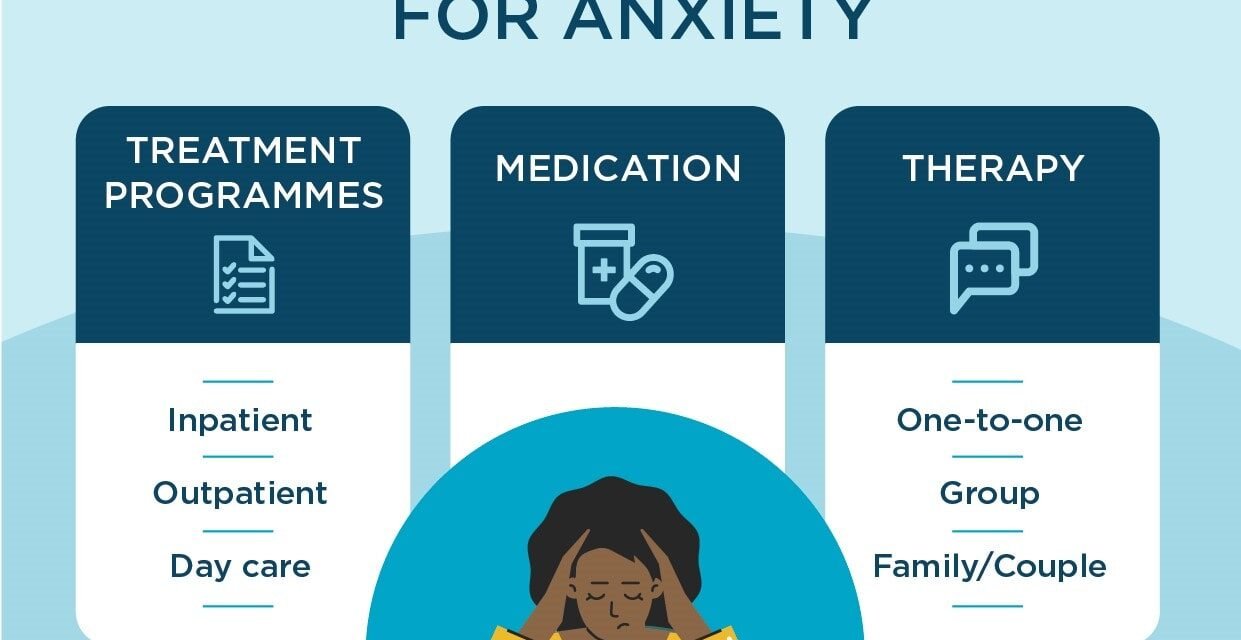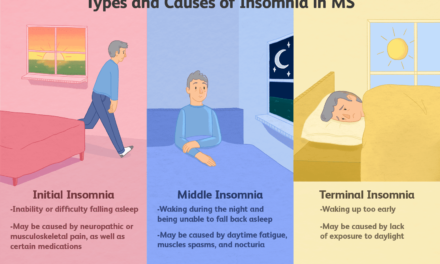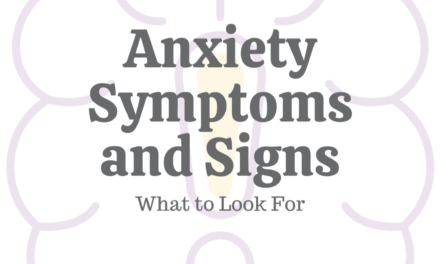Introduction to Best Alternative Treatments for Anxiety.
Best Alternative Treatments for Anxiety,Anxiety is a common mental health issue affecting millions worldwide. While traditional treatments like medication and cognitive -behavioral therapy (CBT) are effective for many, some individuals seek alternative treatments for a variety of reasons, including fewer side effects, a preference for natural remedies, or a desire for more holistic approaches.
Benefits:
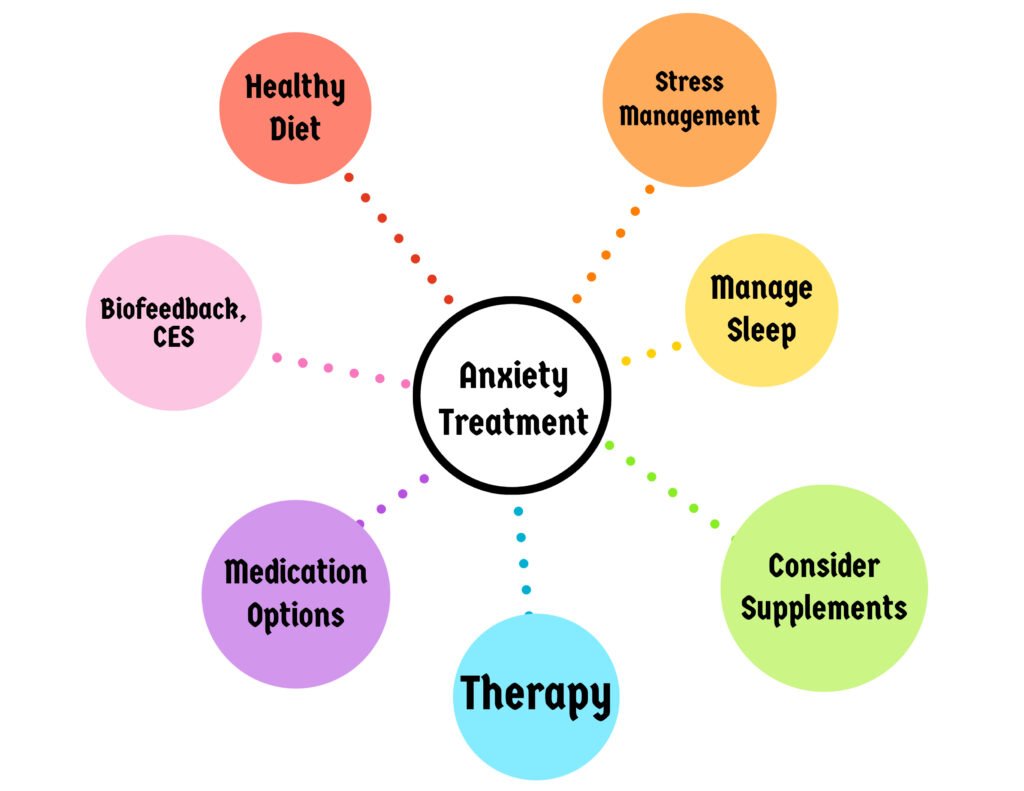
Here are some alternative treatments for anxiety that have garnered attention for their potential benefit:
Mindfulness and Meditation:
Mindfulness and meditation practices have become increasingly popular as alternative treatments for anxiety. These practices involve focusing on the present moment and cultivating a non-judgmental awareness of one’s thoughts and feelings.
Research shows that regular mindfulness meditation can reduce symptoms of anxiety by promoting relaxation, improving emotional regulation, and enhancing overall mental well-being. Mindfulness-based stress reduction (MBSR) and mindfulness-based cognitive therapy (MBCT) are structured programs that incorporate mindfulness practices and have been specifically designed to address anxiety and depression.
2. Herbal Supplements:
Herbal supplements are another alternative treatment option for anxiety.
Some commonly used herbs include:-
Kava Kava:
Known for its calming effects, kava kava has been shown to reduce anxiety symptoms in several studies. However, it is important to use it with caution due to potential liver toxicity.
Passionflower:
This herb is often used to treat anxiety and insomnia. Some research suggests it may be effective, but more studies are needed to confirm its benefits and safety.
Valerian Root:
Commonly used for insomnia, valerian root is also thought to have anxiolytic (anxiety-reducing) properties.
Chamomile:
Often consumed as a tea, chamomile has mild sedative effects that can help with anxiety.While herbal supplements can be helpful, it is crucial to consult with a healthcare professional before starting any new supplement, as interactions with other medications and side effects are possible.
3. Acupuncture:
Acupuncture, a key component of traditional Chinese medicine, involves inserting thin needles into specific points on the body. It is believed to balance the body’s energy flow and promote healing. Some studies suggest that acupuncture can be effective in reducing anxiety symptoms by stimulating the body’s natural painkillers and promoting relaxation. Though more research is needed to fully understand its efficacy, many individuals report positive outcomes from acupuncture treatments.
4. Exercise:
Regular physical activity is a well-documented method for reducing anxiety. Exercise releases endorphins, the body’s natural mood elevators, and promotes overall physical and mental well-being. Activities such as yoga, tai chi, and aerobic exercises have been found particularly beneficial for managing anxiety. Yoga and tai chi combine physical movement with breath control and meditation, providing a holistic approach to reducing stress and anxiety.
5. Aromatherapy:
Aromatherapy uses essential oils extracted from plants to promote physical and emotional health. Oils such as lavender, bergamot, and frankincense are commonly used for their calming properties. Inhalation or topical application of these oils can help reduce anxiety symptoms and promote relaxation. While aromatherapy is generally considered safe, it is important to use high-quality essential oils and follow proper guidelines for their use.
6. Dietary Changes:
Nutrition can play a significant role in mental health. Certain foods and nutrients can help manage anxiety symptoms. Omega-3 fatty acids, found in fish oil and flaxseeds, have been linked to improved mental health. Probiotics, which support gut health, may also influence mood and anxiety levels.
Reducing caffeine and sugar intake can help stabilize mood and reduce anxiety. A balanced diet rich in whole foods, fruits, vegetables, lean proteins, and healthy fats is essential for overall well-being.
7. Biofeedback:
Biofeedback is a technique that teaches individuals to control physiological functions such as heart rate, muscle tension, and breathing through the use of electronic sensors. By becoming aware of these physiological responses and learning how to regulate them, individuals can reduce anxiety and improve their stress management skills. Biofeedback has shown promise in treating anxiety disorders, although it typically requires guidance from a trained therapist.
Historical Perspectives on Alternative Treatments for Anxiety:
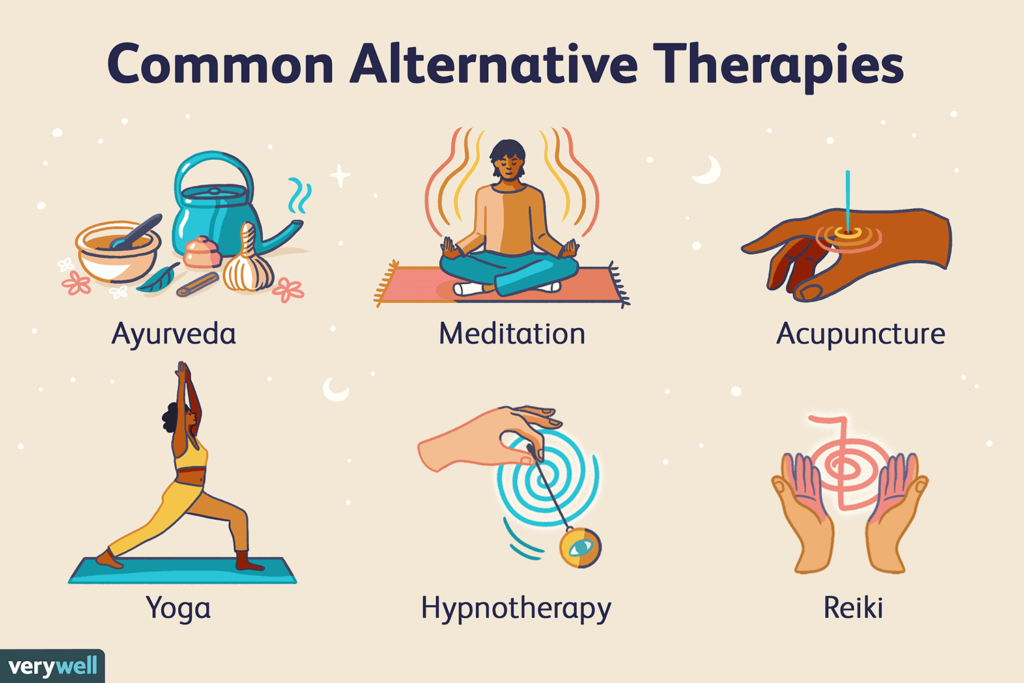
The use of alternative treatments for anxiety is not a modern phenomenon. Throughout history, different cultures have employed various methods to manage anxiety and other mental health conditions. Understanding the historical context of these treatments can provide valuable insights into their development and enduring popular.
1. Egyptian and Mesopotamian Cultures:
In ancient Egypt and Mesopotamia, anxiety was often viewed as a spiritual issue. Priests and healers used rituals, prayers, and herbal concoctions to appease the gods and restore mental balance. Herbs such as myrrh and frankincense, known for their calming properties, were commonly used.
2. Traditional Chinese Medicine (TCM):
TCM, which dates back over 2,500 years, has long utilized practices like acupuncture, herbal medicine, and tai chi to treat anxiety. The concept of balancing Yin and Yang and ensuring the smooth flow of Qi (energy) through the body is central to TCM. Herbs like ginseng and licorice root were often prescribed for their anxiolytic effects.
3. Ayurveda:
Originating in India over 3,000 years ago, Ayurveda is a holistic healing system that addresses the mind, body, and spirit. Ayurvedic practitioners used herbs like ashwagandha and brahmi, along with yoga and meditation, to treat anxiety. The practice emphasizes balance among the body’s doshas (Vata, Pitta, Kapha) for overall health.
4. Greek and Roman Medicine:
Ancient Greek and Roman physicians, such as Hippocrates and Galen, believed in the concept of humoral balance. Anxiety was thought to result from an imbalance of bodily fluids (humors). Treatments included diet, exercise, and herbal remedies like valerian and chamomile. Philosophers like Epictetus and Marcus Aurelius advocated for Stoic principles, encouraging rational thinking and mindfulness to manage anxiety.
5. Medieval Europe:
During the Middle Ages, anxiety was often seen through a religious lens. Monastic life promoted the use of prayer, meditation, and herbal gardens. Monks and nuns cultivated herbs such as St. John’s wort and lavender for their calming effects. Mysticism and spiritual healing were also prominent, with the belief that anxiety could be alleviated through divine Advancements .
6. Medicine and Philosophy:
The Renaissance brought a renewed interest in classical knowledge and natural remedies. Herbalism flourished, and plants like lemon balm and hops were used to treat anxiety. The Enlightenment period further emphasized rational thought and scientific inquiry. Philosophers like John Locke and David Hume discussed the nature of human emotions, laying the groundwork .
Revised Introduction Example:
Here’s a revised introduction that incorporates some of the feedback:—Anxiety is a pervasive mental health challenge that affects millions worldwide. While traditional treatments such as medication and cognitive-behavioral therapy (CBT) are effective for many, there’s a growing interest in alternative treatments. These approaches often appeal to those seeking fewer side effects, natural remedies, or a more holistic treatment experience.
This article explores various alternative treatments for anxiety, delving into their historical roots, current applications, and the evidence supporting their effectiveness. By understanding these diverse methods, individuals can make informed decisions about managing their anxiety in a way that aligns with their personal preferences and needs.
Conclusion:
The exploration of alternative treatments for anxiety reveals a rich tapestry of historical practices and modern innovations. From ancient herbal remedies and traditional practices like acupuncture and Ayurveda to contemporary approaches such as mindfulness and biofeedback, these treatments offer diverse options for managing anxiety.
Integrating these alternatives with conventional treatments can provide a holistic approach, catering to individual preferences and enhancing overall well-being.While the benefits of these alternative treatments are promising, it is crucial to approach them with caution. Consulting with healthcare professionals ensures that these methods are safe and appropriate for each individual’s unique circumstances.
As research continues to evolve, the potential of alternative treatments in managing anxiety becomes increasingly apparent, offering hope and healing to those seeking a more natural and personalized path to mental health.By embracing a broad spectrum of treatment options, we can better address the complex nature of anxiety, promoting a balanced and integrative approach to mental health care.
you must watch 👁️👁️ this article 👇👇⬇️
What are the Symptoms of Anxiety?and Effective Therapies

